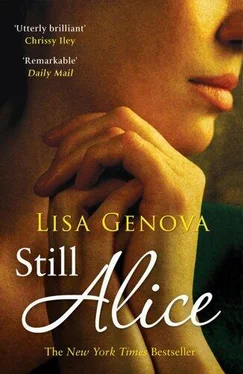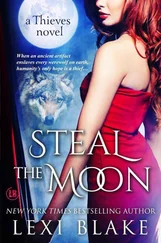Which writers inspire you?
Oliver Sacks is my biggest inspiration. In fact, The Man Who Mistook His Wife for a Hat was really the spark that ignited my interest in neuroscience to begin with. There's this quote from him:
"In examining disease, we gain wisdom about anatomy and physiology and biology. In examining the person with disease, we gain wisdom about life." That's everything right there. That's what I hope to do with my writing, both fiction and nonfiction.
What are you currently reading?
Oddly enough, I'm reading A New Earth by Eckhart Tolle, but not because Oprah told me to. It was recommended to me last August by a friend of mine with Alzheimer's. I was interviewing him for my next book, and he was excitedly telling me about all the incredible new discoveries he'd made, from meditation to diet and exercise to self-awareness. He told me I absolutely had to read A New Earth and that it would change my life. He was right.
I'm also reading The Lace Reader by Brunonia Barry. Amazing!
Do you have any advice for aspiring writers?
I know so many aspiring writers who are sitting in a holding pattern, with a work completed, waiting to find a literary agent. They're stuck, unable to give themselves permission to write the next book because they're waiting to find out if their work is "good enough," waiting to find out if they're a "real writer." This state of waiting, of not writing and self-doubt, is the worst state any writer can be in. My advice is this: If you don't find a literary agent falling into your lap quickly enough, if you feel like your work is done and is ready to be shared with the world, self-publish. Give your work to the world. Let it go. And keep writing. Freedom! I was recently in my car listening to Diablo Cody, who wrote the screenplay for Juno, on NPR and when asked what advice she had for aspiring screen-writers, she said, "Self-publish." I yelled alone in my car, "Woohoo! See?! Diablo Cody agrees with me, and she's just been nominated for an Academy Award!"
Explain your writing schedule.
I have a newborn baby boy, so these days it's catch as you can. But for Still Alice, I wrote in Starbucks every day while my then six-year-old daughter was in school. I found writing from home too difficult. There were too many distractions--phone calls to return, food to eat in the fridge, laundry to do, bills to pay. You know you're procrastinating when you're paying bills instead of writing the next scene! At Starbucks, there were no excuses. Nothing else to do but write. You can't even daydream there for long without looking crazy. So you just put your head down and do it. And I found I always had to stop short to go pick up my daughter from school. I'd be right in the middle of a great scene, right in the zone, and it would be time to get my daughter. And that would be it for the day. I wouldn't get back to it until the next morning. I stuck to that. My time to write was my time to write, and my time with my daughter belonged to us. I think having a limited number of hours each day to write kept me hungry to get back to it. I never dreaded it or experienced writer's block. Every day, I couldn't wait to get back to Starbucks, drink chai tea lattes, and write.
What advancements do you see being made in the fight against Alzheimer's?
Awareness leading to earlier diagnosis is important. Although the current drugs available for treating Alzheimer's do not change the ultimate course of this disease, they can stave off its progression for a significant amount of time, allowing the person with Alzheimer's to live on a sort of plateau, to enjoy the capabilities they still have for a longer time. And the sooner someone is diagnosed and put on medication that keeps them on that plateau, the more likely they'll be able to reap the benefits of a better treatment when one becomes available.
The other advancement I see is that the next generation of drugs for Alzheimer's will be disease altering--they will stop the progression of the disease. It used to be the standard thought that amyloid plaques and/or neurofibrillary tangles got deposited in the brain, and these things "gunked" up the neurons and caused them to die. And this neuronal death caused Alzheimer's.
Here's the new thinking.
The cognitive deficits--the symptoms of dementia--occur before the plaques form, before the neurons die. In the brain of someone with Alzheimer's, there is too much of a soluble protein called amyloid-beta 42. Either too much is made or not enough is cleared away. When too much is present, these individual little peptides stick together and form small oligomers. These gluey oligomers of amyloid-beta 42 lodge in synapses--the spaces between neurons--and interfere with synaptic transmission, the ability of neuron number one to "talk" to neuron number two. And when this happens, new information isn't learned. Or old information can't be accessed. Synaptic plasticity suffers. Over time, because this synapse isn't working properly and because of inflammation and other problems, that nerve axon terminal will retract. Eventually, unable to function, the neuron will die, leaving behind empty space (the atrophy seen on an MRI) and possibly a heap of amyloid-beta 42 in an amyloid plaque.
So it all starts as an attack on the synapses. The degree of dementia correlates only with synapse dysfunction, not with neuronal loss, not with number of plaques, not with atrophy on an MRI.
The cure for dementia, then, the kind of treatments that will be disease altering, will
impede production of amyloid-beta 42,
increase clearance of already produced amyloid-beta 42,
prevent amyloid-beta 42 from sticking to itself so it can't form oligomers, or
rip these already formed oligomers apart.
The beauty and the hope in all of these treatments is that people suffering from symptoms of dementia can be treated before they've experienced any neuron death. If the synapses are fixed, neurotransmission can work again. Function can be restored!
In choosing to tell a story about a woman with Alzheimer's disease, why did you make Alice a fifty-year-old Harvard professor rather than an eighty-year-old retired grandmother?
Well, one is that the fifty-year-old will notice and be alarmed by this disease in its earliest moments. Because we as a culture expect eighty-five-year-olds to be forgetful, because retired grandparents are no longer accountable to corporate bosses, because they don't have to produce a certain number and quality of widgets each day, because they might be widowed and living alone with no one to regularly witness the full extent of what is happening, because it is far easier to deny what is happening well after we suspect it or even trip over it, we don't usually see Alzheimer's in its beginning. In someone who is fifty, who is at the peak of her career, whose status in life and identity depends on a highly functioning brain, you'll see the beginning. And when the rug is pulled out, it's a long and terrifying fall.
There is a line in the book where Alice's doctor tells her, "...you may not be the most reliable source of what's been going on." Yet you chose to tell the story from Alice's point of view. Doesn't that get difficult to do as Alice's disease worsens and her perceptions indeed get less reliable?
It sure does, but I thought it was the most powerful choice. In telling the story through Alice's lens, I sit the reader right up against her Alzheimer's. It should feel uncomfortably close at times. You should feel her confusions and frustrations and terror right along with her. And yes, this choice forces us to lose what's going on inside the thoughts of her husband and the other characters, but we get an insider's perspective into the mind of someone slipping further and further into Alzheimer's. Most people without Alzheimer's never get to sit in that seat.
Читать дальше












